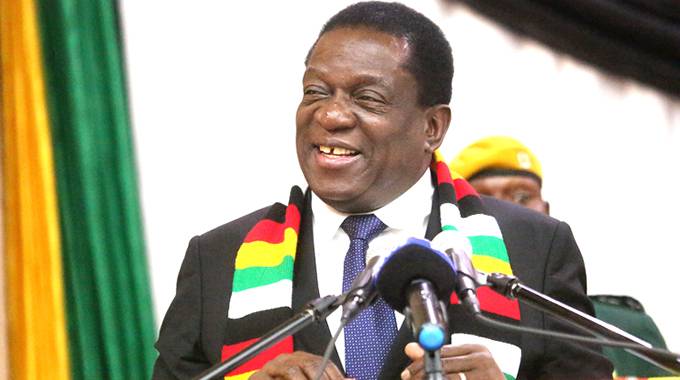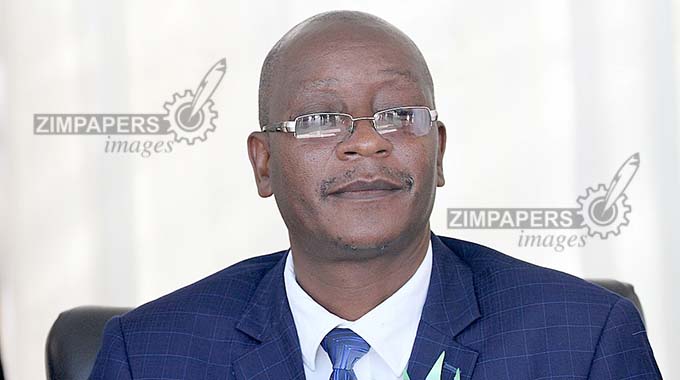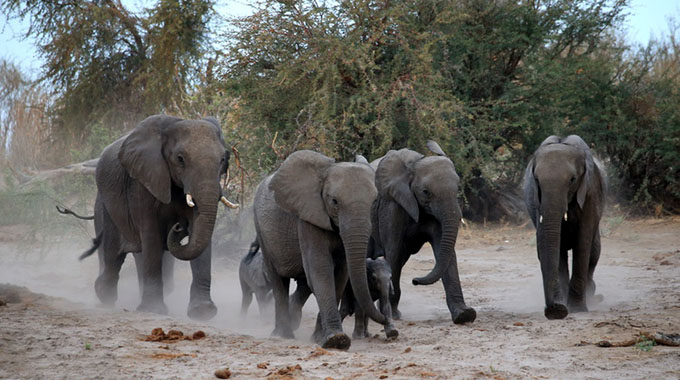EDITORIAL COMMENT: The court has ruled, now let’s move on

THE election is now over with the declared winner, President-elect Emmerson Mnangagwa, now confirmed as the winner by a unanimous decision by the Constitutional Court, will be sworn in to serve for the next five years as decided by more than half of those who voted on Monday July 30. So now we can all move on.
Importantly, the Constitutional Court gave a fair amount of detail over how it reached its decisions, even though the legally detailed and formal written judgement will come later, and largely spoke in ordinary language rather than technical legal phraseology so that the voters can understand the issues involved and why the court came to its decision to reject the petition by MDC-Alliance candidate Mr Nelson Chamisa.
Most critically, when examining the merits of the application, the court noted that Mr Chamisa had never made any allegations that Zanu-PF candidate President Mnangagwa had colluded with the Zimbabwe Electoral Commission to create a fraudulent result. The application concentrated on ZEC rather than on rival candidates.
Secondly, the court found that the application had failed to pass the first hurdles by showing there had been acts or omissions by ZEC, or fraud by ZEC, that would then have required the court to then decide whether these materially affected the result. In other words, the rejection of the petition was a strong rejection, rather than a weak one.
In effect ZEC was cleared of both significant administrative deficiencies and of fraudulently subverting the will of the people rather than facing a finding that it had been very sloppy but that this did not affect the result.
In its very clear summary judgment given yesterday by Chief Justice Luke Malaba, the Constitutional Court addressed the issues raised by Mr Chamisa and the responses by President Mnangagwa, in his capacity as a candidate, by ZEC and by the ZEC chairperson Justice Priscilla Chigumba.
The first set of court decisions were on whether the petition had been launched in time. The court found that it had not, authoritatively defining the time limits in the Constitution as calendar days rather than court days and so settling that divergence of opinion. But the court condoned the omission in the public interest and dealt with the merits of the application.
In the judgment the Constitutional Court carefully set out the legal tests required for a successful petition and then examined how far Mr Chamisa’s petition met those tests. This is standard in any court and is in fact how the law is applied.
Some of these tests are laid out in the Constitution itself; others are laid out in the Electoral Act, the main law detailing how elections are to be run; and others are well-established precedents that are accepted in all jurisdictions around the world. There is nothing contentious in these.
Chief Justice Malaba stressed that for almost all the allegations a degree of proof was required that would satisfy the court that something had gone wrong or that there had been fraud. In other words, the court needed hard evidence rather than allegations. Accusers need to prove something went wrong; the innocent do not have to prove their innocence, although the court appeared to be impressed by the responses of ZEC, the main accused in this petition.
Answering allegations that the contents of the boxes may have been tampered with after sealing, the Chief Justice noted that candidates were entitled to agents in every polling station and that these agents were entitled to a copy of the final V11 form, the main record, at the conclusion of the count. A sample of these copies compared to the actual contents of the boxes would, if they showed tampering, be strong evidence that something serious was wrong.
The Chief Justice did not mention that all these agents and the teams need to examine the contents of unsealed boxes would require a lot of manpower but it is generally accepted that a serious candidate, a person whose votes are counted in millions not thousands, can find volunteers to man almost every one of the almost 11 000 polling stations and could find volunteers to assist his legal team examine boxes.
With more than 44 percent of the vote Mr Chamisa was a serious candidate. The process outlined by the court would, in the words of one of the lawyers pleading during Wednesday’s court hearing, either find a smoking gun or find there was no gun after all.
Without evidence from this primary source, or evidence that the primary source had been tampered with, the petition lacked the required proof to get the court to overturn the result. There were other allegations that also required proof from a different source, and again the Chief Justice outlined the sort of evidence, relatively easy to obtain, that would persuade the court.
On the data-entry corrections made by ZEC to the final totals after the petition was received, the court noted that these did not affect the result, the result being the finding that one candidate had received at least half the votes plus one. The result was not the detailed figures and the law allowed changes in these figures.
The Chief Justice stressed it was not the function of the court to choose the President of Zimbabwe. That was the function of the voters, the citizens. The function of the court was limited to ensuring that the choice of the people was properly declared the winner and this is what the people expect of their courts.
The unanimous decision, rather than the 5-4 decision by the American Supreme Court in 2000 in a legally-disputed election, should also assure Zimbabweans that the issues were clear-cut. Judges are independent in theory and, thanks to a cast-iron guarantee of staying in post so long as they do not commit a criminal offence, are independent in practice as well.
So now we all need o accept the election is over and start working out, in our various roles, how to move Zimbabwe forward.









Comments